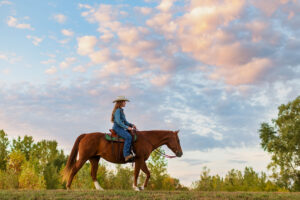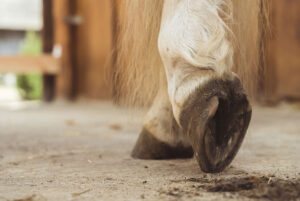Researchers Unlock Clues about Aging Equine Tendons
- Topics: Article
Scientists from the University of Liverpool and Queen Mary University of London, both in England, have examined the mechanisms that cause tendon aging in horses, which could open up the possibility of better treatment for both horses and humans in the future.
It has been understood for many years that tendons are highly prone to injury and that this likelihood increases as they age. Why this happens, however, remained poorly understood
Using samples taken from young and old horses, which have similar tendon properties to those of humans, the researchers performed a range of tests to profile the types, quantities, and proportions of proteins present in the tendon. Ultimately, the team found marked differences in the proteins in young and old horses.
“Injured tendons are extremely painful and limiting in humans and we know that this increases as we get older," explained chair of musculoskeletal biology and professor of equine orthopaedics Peter Clegg, MA, VetMB, PhD, CertES, Dipl. EVCS, MRCVS. “We’re now starting to get to the ‘why’ of this process by showing that the proteins produced by the cells to repair damage alter as we get older
Create a free account with TheHorse.com to view this content.
TheHorse.com is home to thousands of free articles about horse health care. In order to access some of our exclusive free content, you must be signed into TheHorse.com.
Start your free account today!
Already have an account?
and continue reading.
Related Articles
Stay on top of the most recent Horse Health news with


















